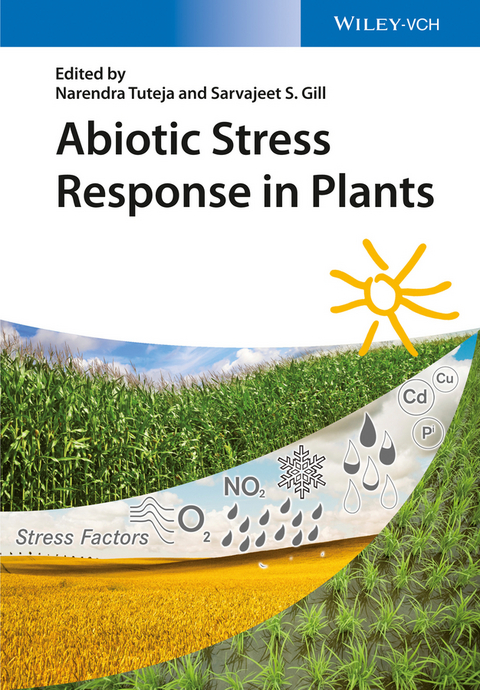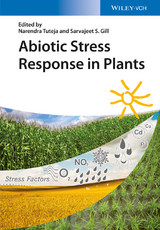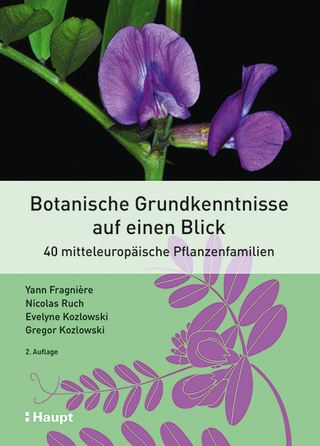Abiotic Stress Response in Plants
Wiley-VCH (Verlag)
978-3-527-33918-1 (ISBN)
- Titel ist leider vergriffen;
keine Neuauflage - Artikel merken
An elected fellow of numerous academies, Narendra Tuteja is currently a senior scientist at ICGEB, New Delhi, India. He has made significant contributions to crop improvement under adverse conditions, reporting the first helicase from plant and human cells and demonstrating new roles of Ku autoantigen, nucleolin and eIF4A as DNA helicases. Furthermore, he discovered novel functions of helicases, G-proteins, CBL-CIPK and LecRLK in plant stress tolerance, and PLC and MAP-kinase as effectors for G proteins. Narendra Tuteja also reported several high salinity stress tolerant genes from plants and fungi and developed salt/drought tolerant plants. Currently assistant professor at MD University, Rohtak, India, Sarvajeet Singh Gill has made significant contributions to abiotic stress tolerance. Together with Narendra Tuteja he worked on plant helicases and discovered a novel function of plant MCM6 in salinity stress tolerance that will help improve crop production at sub-optimal conditions. A recipient of the Junior Scientist of the Year Award 2008 from the National Environmental Science Academy, Sarvajeet Gill has edited several books and has a number of research papers, review articles, and book chapters to his name.
PART I: ABIOTIC STRESSES - AN OVERVIEW
Abiotic Stress Signaling in Plants: An Overview
The Plant Response to Genotoxic Stress: A Crucial Role in the Context of Global Climate Change
Understanding Altered Molecular Dynamics in the Targeted Plant Species in Western Himalaya in Relation to Environmental Cues
Crosstalk between Salt, Drought and Cold Stress in Plants: Towards Genetic Engineering for Stress Tolerance
Intellectual Property Management and Rights, Climate Change and Food Security
PART II: INTRACELLULAR SIGNALING
Abiotic Stress Response in Plants: Role of Cytoskeleton
Molecular Chaperone: Structure, Function and Role in Plant Abiotic Stress Tolerance
Physiological Roles of Glutathione in Conferring Abiotic Stress Tolerance to Plants
Role of Calcium Dependent Protein Kinases during Abiotic Stress Tolerance
Lectin Receptor-Like Kinases and their Emerging Role in Abiotic Stress Tolerance
PART III: EXTRACELLULAR OR HORMONE-BASED SIGNALING
Heavy Metal Induced Oxidative Stress in Plants: Physiological and Molecular Perspectives
Metallothioneins and Phytochelatins: Role and Perspectives in Heavy Metal(loid)s Stress Tolerance in Crop Plants
Plant Response to Arsenic Stress and Role of Exogenous Selenium to Mitigate Arsenic Induced Damages
Brassinosteroids: Physiology and Stress Management in Plants
Abscisic acid (ABA): Biosynthesis, regulation and role in abiotic stress tolerance
Cross-Stress Tolerance in Plants: Molecular Mechanisms and Possible Involvement of Reactive Oxygen Species and Methylglyoxal Detoxification Systems
PART IV: TRANSLATIONAL PLANT PHYSIOLOGY
Molecular Markers and Crop Improvement
Polyamines in Stress Protection: Applications in Agriculture
| Erscheint lt. Verlag | 16.3.2016 |
|---|---|
| Verlagsort | Berlin |
| Sprache | englisch |
| Maße | 170 x 244 mm |
| Gewicht | 1123 g |
| Themenwelt | Naturwissenschaften ► Biologie ► Botanik |
| Weitere Fachgebiete ► Land- / Forstwirtschaft / Fischerei | |
| Schlagworte | Agriculture • Biotechnologie • Biowissenschaften • Botanik • Botanik / Biotechnologie • Botanik / Physiologie • crops • Feldfrüchte • Landwirtschaft • Life Sciences • Pflanzen • Pflanzenphysiologie • Plant Biotechnology • Plant Physiology |
| ISBN-10 | 3-527-33918-3 / 3527339183 |
| ISBN-13 | 978-3-527-33918-1 / 9783527339181 |
| Zustand | Neuware |
| Informationen gemäß Produktsicherheitsverordnung (GPSR) | |
| Haben Sie eine Frage zum Produkt? |
aus dem Bereich




